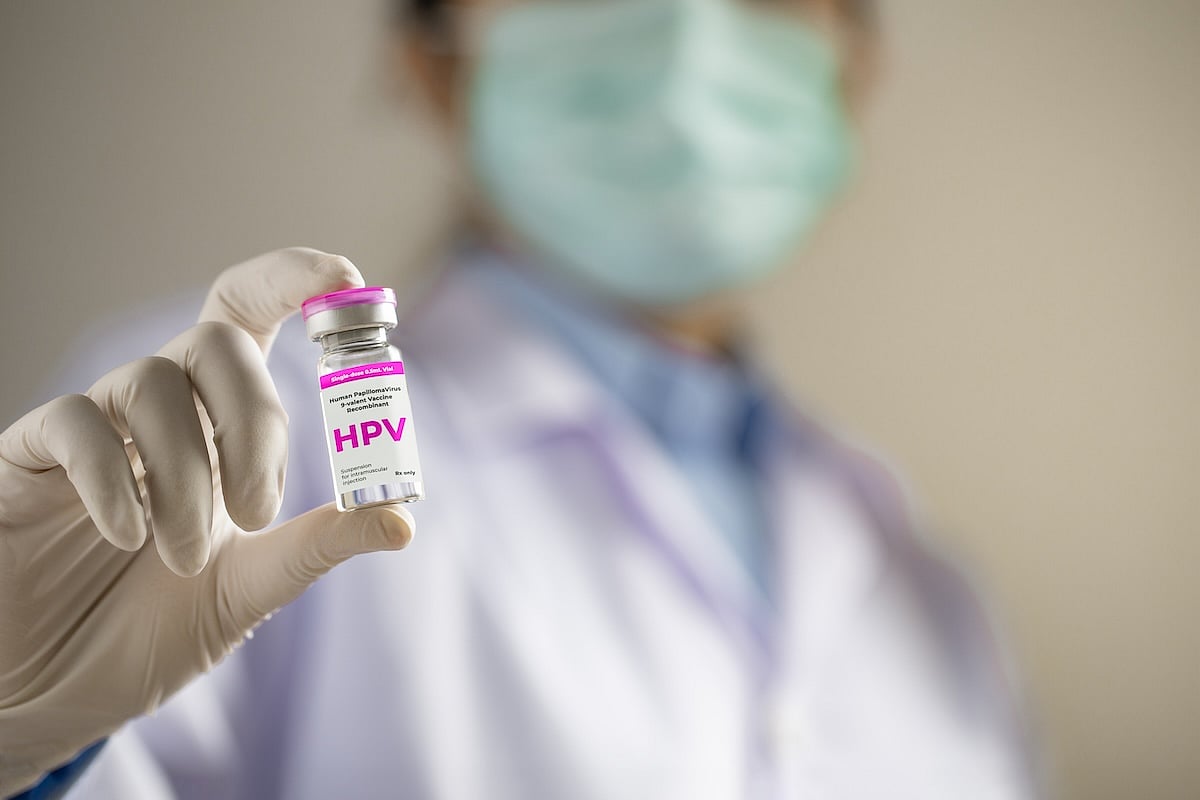HPV Vaccine Protecting Against Infections, Even Among Unvaccinated
WEDNESDAY, Oct. 1, 2025 — The human papillomavirus (HPV) vaccine is protecting women from the cervical-cancer-causing virus — including those who don’t get the jab, a new study says.
Depending on which vaccine they received, HPV infections fell by 76% to 98% over 17 years among vaccinated women, researchers reported in the journal JAMA Pediatrics.
But infections also fell by 72% to 76% among unvaccinated women during the same period, results showed.
“There are two encouraging takeaways from our study,” said senior researcher Dr. Jessica Kahn, chair of head and neck pathology at the Albert Einstein College of Medicine in New York City.
“First, HPV vaccines work remarkably well in a real-world setting, even among women at high risk for HPV and who may not have received all vaccine doses,” she said in a news release. “Second, we saw clear evidence of herd immunity, meaning when enough people are vaccinated, the vaccine indirectly protects unvaccinated people by reducing overall virus transmission.”
Kahn said these results "reinforce the potential of the HPV vaccine to prevent infection and, ultimately, eliminate cervical cancer globally.”
Long-lasting infection with high-risk strains of HPV causes virtually all cervical cancers, according to the National Cancer Institute. It’s also responsible for other genital cancers and head and neck cancers in both women and men.
In the United States, three HPV vaccines have been approved, researchers said in background notes.
The first vaccines, approved in 2006, protects against four strains, HPV-6, HPV-11, HPV-16 and HPV-18. Another, approved in 2009, protects against two high-risk strains, HPV-16 and HPV-18. The third, approved in 2014, is effective against nine different strains, including all of the strains in the first two vaccines.
The nine-strain vaccine is the only one available in the U.S. since 2016, and it targets HPV strains responsible for about 90% of cervical cancers, researchers said.
For the new study, researchers tracked HPV infections among more than 2,300 young women in Cincinnati between October 2006 and September 2023. About 79% had two or more male sexual partners, increasing their risk of HPV, and 51% had a history of at least one sexually transmitted infection (STI).
During the study period, HVP vaccination rates reached as high as 82% among the women, researchers found.
As vaccination coverage increased, HPV infections dropped dramatically:
-
98% among women who got the 2-valent vaccine.
-
94% for women covered by the 4-valent vaccine.
-
76% among women who received the 9-valent vaccine.
“Our analysis of the data indicates that those reductions in infection rates were primarily due to the vaccine’s introduction and not because of changes in sexual behavior or other factors,” lead researcher Aislinn DeSieghardt said in a news release. She’s a clinical research coordinator at Cincinnati Children’s Hospital Medical Center.
Further, the data showed that herd immunity protected even women who were not vaccinated.
Infections among the HPV types covered by the 2-valent vaccine fell by nearly 72% among the unvaccinated, and infections of the types covered by the 4-valent vaccine fell by 76%, the study found.
Kahn said this herd immunity was likely related to robust vaccination rates among boys as well as girls. However, she noted there’s not yet enough data to confirm that the 9-valent vaccine provides similar herd protection.
“In the United States and other countries with widespread HPV vaccination programs, cervical cancer rates are already declining,” Kahn said.
“By expanding uptake of this highly safe and effective vaccine, and ensuring access to screening and treatment, we can achieve one of the greatest public health victories of our time: the elimination of cervical cancer worldwide,” she concluded.
Sources
- Albert Einstein College of Medicine, news release, Sept. 29, 2025, JAMA Pediatrics, Sept. 29, 2025
Disclaimer: Statistical data in medical articles provide general trends and do not pertain to individuals. Individual factors can vary greatly. Always seek personalized medical advice for individual healthcare decisions.
© 2025 HealthDay. All rights reserved.
Read this next
NIH Awards $50 Million to Top Autism Researchers Despite Political Controversy
WEDNESDAY, Oct. 1, 2025 (HealthDay News) — In a move that surprised many in the scientific community, the National Institutes of Health (NIH) has awarded $50 million to 13...
Teen Develops Rare Vaginal Cancer Typically Found In Older Women
TUESDAY, Sept. 23, 2025 — Liliana “Lili” Casteneda had what she thought was her first period at the age of 14, during the height of the COVID-19 pandemic. But...
Trump Links Tylenol, Vaccines to Autism Without Evidence, Experts Say
TUESDAY, Sept. 23, 2025 — President Donald Trump on Monday linked autism to acetaminophen use in pregnancy and vaccines — claims that scientists say are not supported...
More news resources
- FDA Medwatch Drug Alerts
- Daily MedNews
- News for Health Professionals
- New Drug Approvals
- New Drug Applications
- Drug Shortages
- Clinical Trial Results
- Generic Drug Approvals
Subscribe to our newsletter
Whatever your topic of interest, subscribe to our newsletters to get the best of Drugs.com in your inbox.


